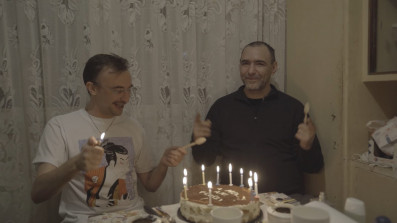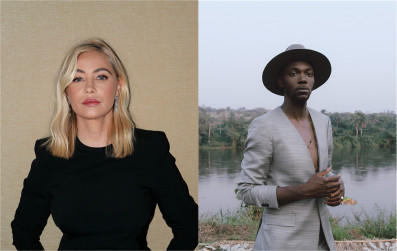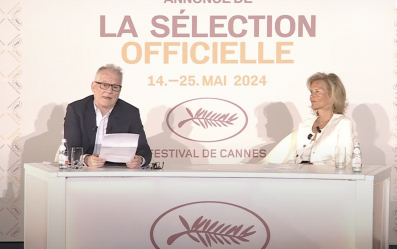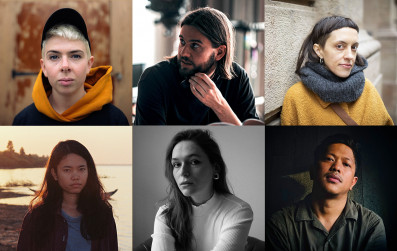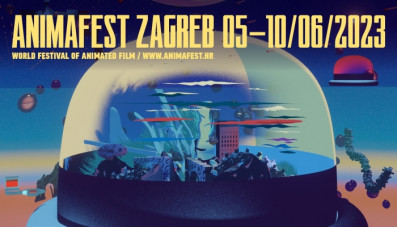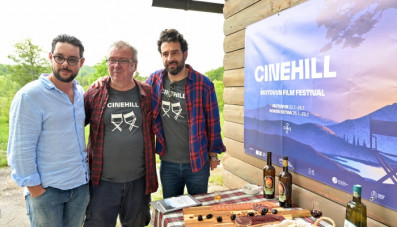
BERLINALE SPECIAL DAY 8: Focus on LGBT with competition entry "Days" and special screening of "Charlatan"
Gentle stories of tender male sexuality
With only one new competition entry Days by Tsai Ming-liang focus of the 8th day of the festival moves a bit more into the territory of the tender male sexuality. After the film of grand Taiwanese art-house director, the second premiere of the day came from Berlinale Specials, and it was Polish director Agnieszka Holland film Charlatan, the biopic of a Czech homosexual herbal healer Jan Mikolásek.
This film is intentionally unsubtitled, tell us the calming white opening titles with a gentle font. Then a man in his late 40s early 50s sits alone in his rich, white/brown minimalist home, looking like the rain pours on the outside... it seems as he has distanced himself away from the outside world deep within his mind... this is what Tsai Ming-Liang serves us in an opening scene of his latest work titles Days.
As the scenes of an elder man Kang -starring Kang-sheng Lee - soon start stacking one, up to another - showing us his calm, healing home – it starts at first to seem that director Ming-Liang has decided to play with the conceptualization of static moving images. Sound is there, the character is there, but the movement is lacking, and within this lack comes the opportunity for a viewer to merge within what is on screen, become part of the story...
This is the moment where we get introduced to Non, the second character of Days -starring Anong Houngheuangsy -a 20 something years old living in a poverty. In his filthy basement he moves around a lot, his activities, as simple as they are, the dinner preparing, having a bath are building a high contrast next to Kang's narrative line.
What we are following are a few days in the life of these two-man. Director purposefully chooses slow and monotonous moments as bathing, cooking, crossing the street, resting, to showcase the fadedness of everydayness, which still holds within itself highly noticeable class differences. The rich elderly man can allow himself to constantly be passive, to stay out of the movement while the younger one, whether he likes it or not, has a need, an urge to stay active, constantly moving.
With the lowered tempo, it becomes obvious that Ming-Liang wants us to reflect and contemplate about what is happening onscreen. With this, he opens us a window of opportunity to merge the moving images and give them give us direction cues, but outside of it, every viewer is his own poet and author of a narrative.
Two crucial moments of the film are, the half-way point, where we switch between two days in life, and we are looking at the sun rising upon the old skyscraper with dark, faded, mudded and broken windows, while there is no audio running in the background. Then, there is, of course, the moment where the world of two-man collide, and they get naked literally and figuratively in front of each other. The tensions, emotions passion and sensitivity gets uncovered and shifts the final act of a film into a new subtle movement and emotion.
Overall Days is one of those films that requires full viewer engagement, attention and readiness to be patient and not too overly push self into this deeply sensitive film.
Charlatan © Marlene Film Production
In selection Berlinale Special, on day 8 Polish director, Agnieszka Holland presented Charlatan an interesting, yet true to be told unnecessary biopic of WW2/ Cold War Chezch herbalist Jan Mikolásek – starring Ivan Trojan. Within the 118 minutes runtime, director shifts across different periods of Mikolásek's life, from the viewpoint of Communist government agents as well as his defense attorney, seeking -or probably better said rubbing into our faces- the reason of his execution.
It is believed that Mikolásek in several decades of his herbalist and urologist praxis has helped millions of people, never seeking fame or reimbursement for his examinations. For these actions, he might seem like a saint or a man that got a gift from a God (to know when someone will die just by looking at their urine) and up to a certain point, Holland pushes us into that direction. Still, when the film opens up a bit to examining some of his actions and alliances with nazis as well as communists this is far away from a realistic judgment.
Charlatan might sound great as a pitch, but there is not enough substance or interesting elements of Mikolásek's life to be developed into a rememberable feature film.
There is a lot of wasted potential in this film, and it is hard to pinpoint whether things went wrong on the level of the script or in the editing room. Characters never get full development as they play along the lines of what gets established in the first several minutes of a film. Too many periods of herbalists' life -from the world war, trough the years of his teaching, early and late years of his praxis all the way to the trial - are trying to get explored but none of them gets enough screen time for a viewer to care.
The key point, of the film, for Holland, is the sexual orientation of Mikolásek and his need to be in power and dominate everyone around him. This plays somewhat interesting because the film gives hints that neither common Christians, Nazis or Communists seem inclined towards homosexuality. This is probably the best that can be said about the film without being offensive. Charlatan is not bad, it is just average and enjoyable in the sense of a tv movie rather than in the sense of festival inquiry/ wide cinematic distribution.



